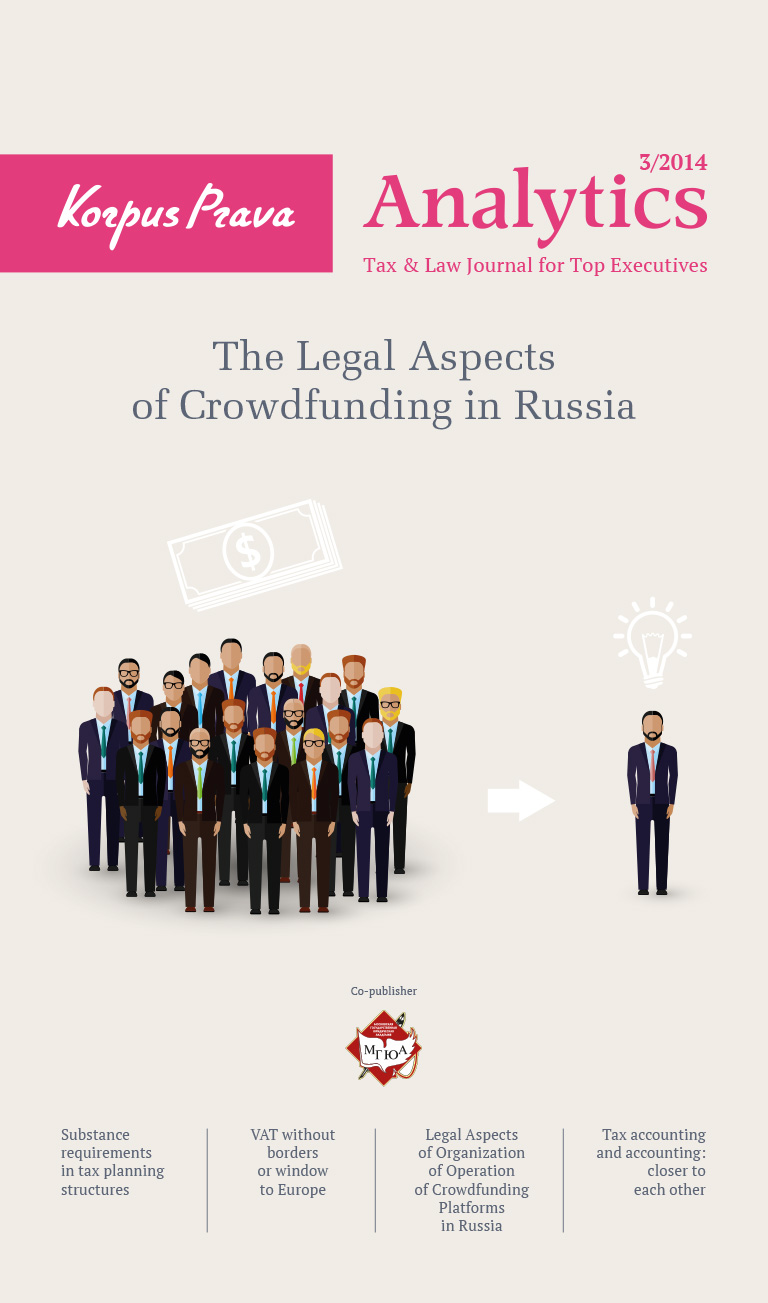- Cyprus Citizenship Scheme for Foreign Investors
- Squeezed But Pleased: Taxation of Passive Income in the European Union
- VAT Without Borders or Window to Europe
- Legal Aspects of Organization of Operation of Crowdfunding Platforms in Russia
- Substance Requirements in Tax Planning Structures
- “Deposit Splitting” of Individuals. Legal Civil and Criminal Aspects
Anti-Money Laundering: How Money Laundering Is Fought in Cyprus
Rendering corporate and fiduciary services in Cyprus is a regulated type of activity, which requires licensing. License for rendering such services is issued by a regulatory authority, Cyprus Security and Exchange Commission (“CySec”). CySec has issued license (registration number 14/196) for rendering corporate and fiduciary services to Korpus Prava Corporate Services.
Companies rendering corporate and fiduciary services are obliged to operate in accordance with anti-money laundering and anti-terrorism financing provisions (Anti-Money Laundering or shortly AML). Statutory regulation of AML is stipulated in the following laws:
- The Law Regulating Companies Providing Administrative Services and Related Matters of 2012 (L.196 (I)/2012) and the Amending Law 109(I)/2013 wef. 09/09/2013;
- Directives of the European Union:
- (Directive 91/308/EEC of 10 June 1991 on Prevention of the Use of the Financial System for the purpose of Money Laundering (the 1st Directive);
- Directive 2001/97/EC of the European Parliament and of the Council of 4 December 2001 on the Prevention of the Use of the Financial System for the purpose of Money Laundering (the 2nd Directive);
- Directive 2005/60/EC of the European Parliament and of the Council 26 October 2005 on the Prevention of the Use of the Financial System for the purpose of Money Laundering and Terrorist Financing (the 3rd EU Directive, also known as the “3MLD”);
- The Prevention and Suppression of Money Laundering Activities Law (Law 188(I)/2007); This law brings the law of Cyprus in conformity with the 3rd EU Directive;
- The Directive of the Cyprus Securities and Exchange Commission for the Prevention and Suppression of Money Laundering and Terrorist Financing (DI 144-2007-08 of 2012).
For the purposes of anti-money laundering, experts thoroughly study nature and mechanism of conducting unlawful financial operations. There are different ways of money laundering. There are three main stages:
- Placement: placement of illegally obtained money by depositing cash, and also using other methods, in traditional financial institutions;
- Layering: separation of money acquired by illegal means through using layers of complex financial operations, through transformation of money into travel checks, money transfers, wire payments, bills of credit, shares, debentures, acquisition of valuable assets, such as works of art or jewelry. Such transactions are made for concealing audit statements and securing anonymity;
- Integration: final stage of money laundering when illegally obtained money return to the criminal. Money return by wire transfer to accounts of companies registered for illegal purposes or by sale of valuable goods acquired at the layering stage.
Regarding Cyprus, it should be noted that risk of money laundering at placement stage is minimal due to strong statutory regulation of cash turnover. The existing ways of fighting money laundering are aimed at prevention and response to layering and integration stages. Procedures set forth in laws that address fighting income laundering and terrorism financing are aimed at two main goals: first, identification and provision of information on shady transactions to relevant authorities, and secondly, application of Know Your Client (KYC) principle, and application of relevant accounting policy in case investigation is conducted in respect of a client. If necessary, provider of corporate and fiduciary services shall submit its report. In accordance with the foregoing law, providers of corporate and fiduciary services in their activity should apply a number of procedures:
- Client identification, procedure for the acceptance of a client, evaluation of risks due to the acceptance of a client, KYC procedure;
- Preparation of accounting statements;
- Preparation of internal accounts and submission of accounts to MOKAS (anti-money laundering subdivision);
- Detailed research of each deal, which by its nature may refer to money laundering of terrorism financing;
- Notification of employees on:
- Procedures aimed at prevention of money laundering and terrorism financing;
- Laws on anti-money laundering and anti-terrorism financing;
- Directives issued by relevant controlling authorities in accordance with Section 59(4) of the Law on the Prevention of Laundering of Income Acquired by Illegal Means and Terrorism Financing;
- Directives of the European Union on the prevention of laundering of income acquired by illegal means and terrorism financing.
- Constant training of employees for shaping their skills required for the performance of necessary actions for the prevention of laundering of income acquired by illegal means and terrorism financing.
Today, the Fourth EU Anti Money Laundering Directive (AMLD4) of the European Parliament and Council is drafted. Creation of this Directive is aimed at enhancement of efficiency of anti-money laundering and anti-terrorism financing, at introduction of applicable amendments to already existent laws in this area. Today, the key amendments, which should be included into provisions of the Directive, are presented:
- Regulation of interaction with politically exposed people (PEP) will be more strict, including creation of lists of PEPs, their close relatives and their property for the purposes of easing their identification;
- Right for simplified procedure of client examination shall be abolished;
- Sanctions for breach in the area of anti-money laundering and anti-terrorism financing shall be toughened;
- There is a plan to introduce a new system of risk evaluation at the EU level and the national level.
According to preliminary data, after the Fourth EU Directive comes to force Member States will have two years for bringing their national law in compliance with it.
Within the scope of its work, Korpus Prava Corporate Services performs all necessary procedures (KYC, internal examination of files of companies, identification of information on transactions, etc.) aimed at anti-money laundering and anti-terrorism financing set forth in AML law.
Your subscription to our journal will definitely boost the efficiency of your specialists and downsize your expenses for consultants.
The journal is available free of charge in the electronic version.
Free Download

